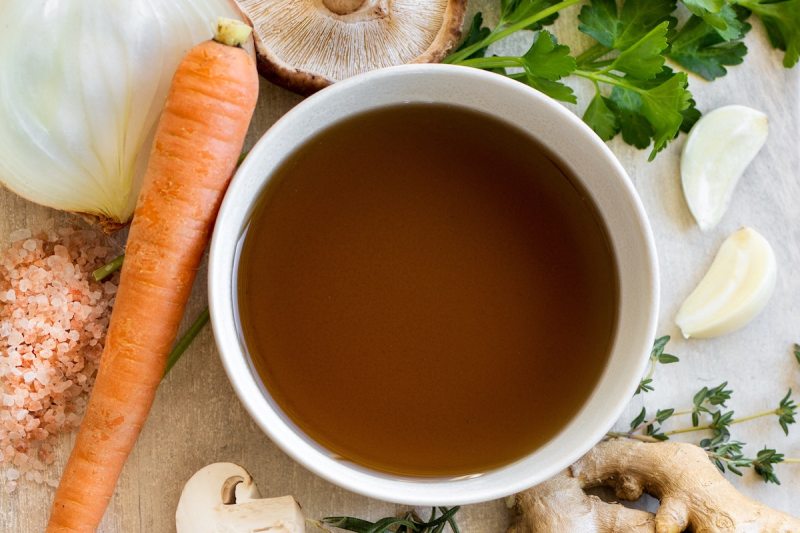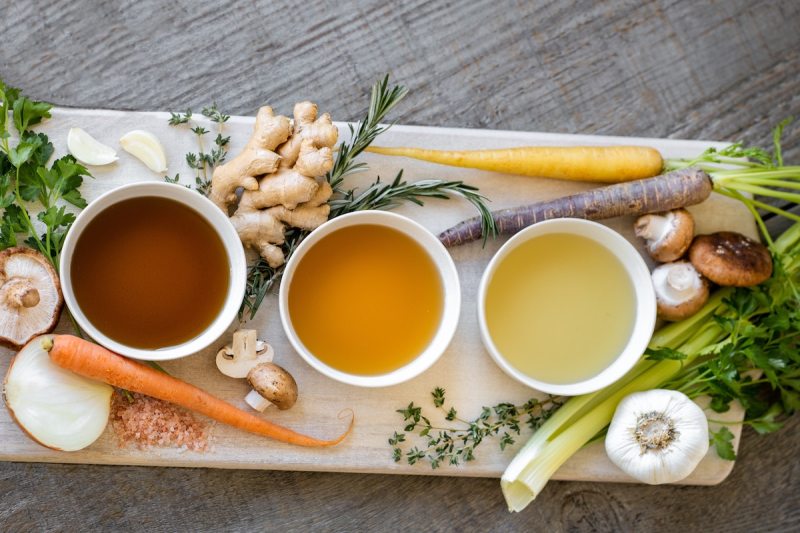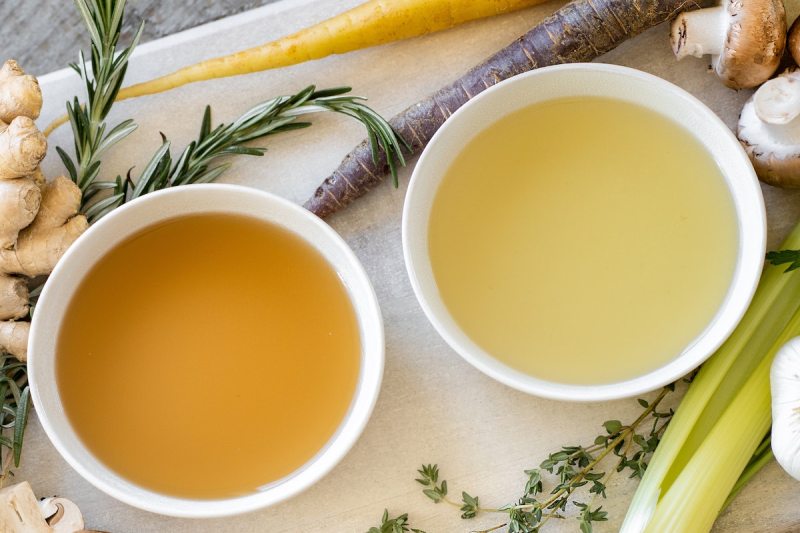Are you looking to improve your health? With so many different diets out there, it can be difficult to know which will give you the most benefits. As a trainer and nutritionist, I constantly work with clients who feel like they’ve tried every diet under the sun, but nothing seems to stick.
So, what about the bone broth diet? Could this be the one that ends up making you feel your best? Keep reading to learn exactly what the bone broth diet is, possible pros and cons, and more!
What is the bone broth diet?

The Bone Broth Diet is a 21-day weight loss plan that combines a low-carb, Paleo diet with intermittent fasting created by naturopathic doctor Kellyann Petrucci.
By incorporating the gut health benefits of Paleo eating with the metabolism-boosting effects of intermittent fasting and the collagen-rich nutrients of bone broth in a distinct system, Dr. Petrucci claims the diet will help you “lose up to 15 pounds, 4 inches, and your wrinkles — in just 21 days.”
How does the bone broth diet work?

The bone broth diet is a 21-day plan consisting of five days of eating only Paleo foods followed by two days of fasting and consuming a large amount of bone broth each day.
The meal plan for the five Paleo days consists of low-carb Paleo foods — meat, fish, poultry, eggs, non-starchy vegetables, and healthy fats — and one to three cups of bone broth. On the two fasting days, you are to consume only three to six cups of bone broth.
What is bone broth, and what are its benefits?

Bone broth is made by simmering animal bones to release minerals, collagen, and amino acids. Bone broth provides whole-food-based type II collagen and gelatin, which are known for enhancing the appearance of skin and also supporting digestive health.
Collagen also contains the amino acids glucosamine, proline, and glycine, which promote joint health while maintaining lean muscle mass. Bone Broth is also a source of protein and essential amino acids and minerals — which are lacking in many diets today.
Are there cons to this diet?

While bone broth itself has some potential benefits, as listed above, the bone broth diet may have some downsides to consider if you’re thinking about following this diet. One thing to consider is the restrictive nature of the diet, which can lead to deficiencies in essential nutrients like fiber, calcium, vitamins, and certain essential fats. Also, broth can trigger digestive problems like bloating, constipation, and nausea in some people, especially those with sensitive stomachs or existing gut conditions.
The diet can be difficult to maintain long-term because of its restricted nature and lack of variety. This can lead to yo-yo dieting and unhealthy eating patterns in the long run. It’s also important to note that this diet isn’t suitable for everyone, especially people with certain medical conditions or those taking certain medications.
Bone broth diet results

While there are no published research results to support the bone broths diet claims, the adoption of lifestyle changes such as low-carb, Paleo diet, and intermittent fasting has been linked to positive health changes. Still, it’s not a long-term solution, and other lifestyle changes — such as eating more fruits and vegetables, practicing portion control, and getting regular exercise — can be a more sustainable way to lose weight. As with any dietary change, it’s important to check with your doctor or licensed healthcare practitioner before making any change to your diet.
Example day of eating on the bone broth diet

The bone broth diet can potentially have many benefits. If you are looking to give it a try, here’s an example of what a day of eating on this diet looks like.
- Breakfast: Start with a warm mug of bone broth, providing collagen and minerals to kickstart the day. Pair it with a protein-packed meal like scrambled eggs with spinach and avocado for healthy fats.
- Lunch: Enjoy a hearty vegetable soup made with bone broth, adding lean protein like chicken or tofu. A side salad with olive oil and vinegar dressing complements the meal.
- Snack: Opt for a small portion of bone broth or a protein shake to curb hunger between meals.
- Dinner: Have a grilled salmon fillet with roasted vegetables and a side of bone broth. This meal ensures ample protein and healthy fats to satisfy your appetite.




